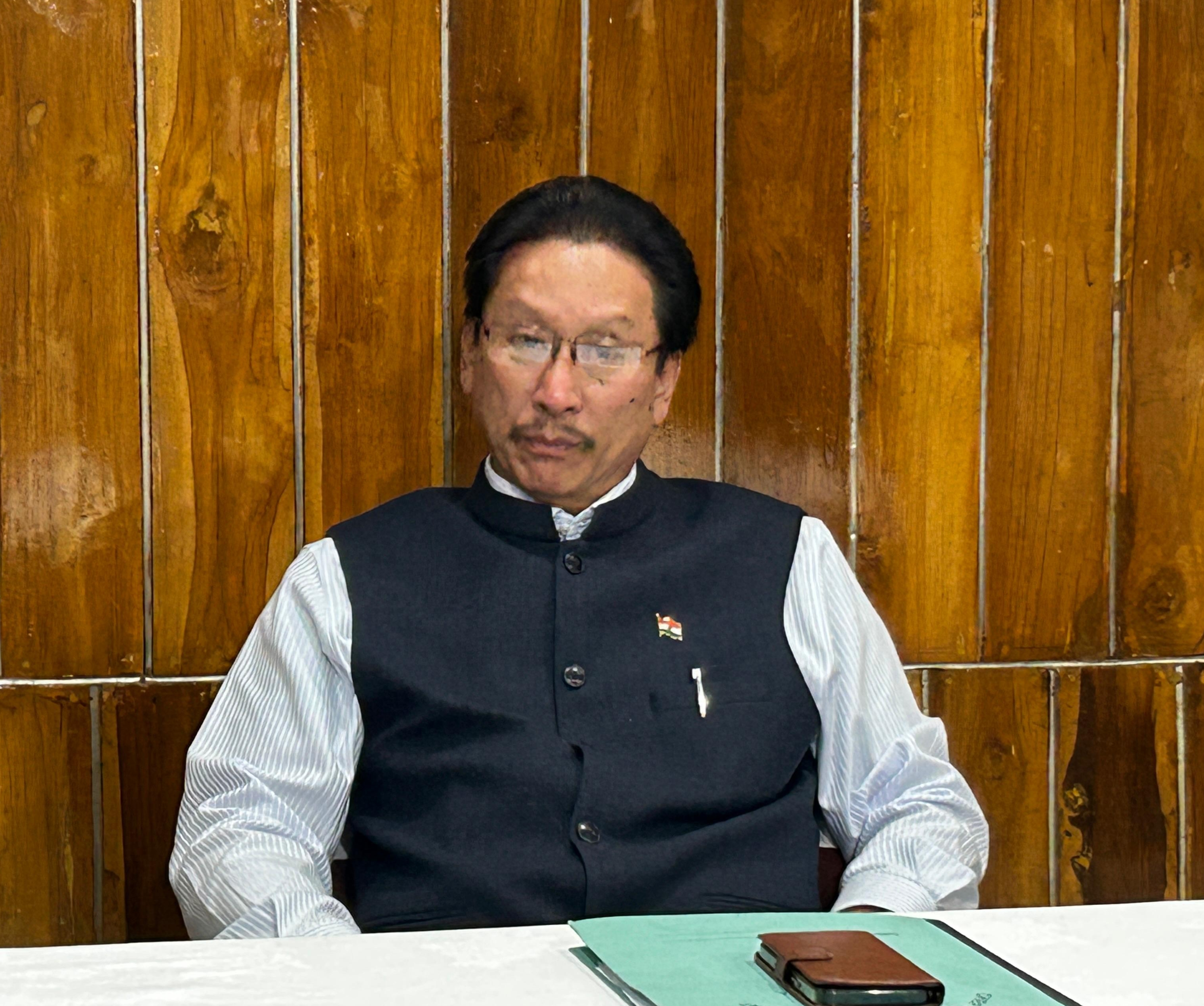Nagaland Cabinet forms Reservation Review Commission, discusses ILP enforcement and plans Delhi visit over Frontier Authority issue.
Share

KOHIMA — Nagaland Cabinet on Wednesday approved the constitution of a 7-member Reservation Review Commission (RRC) to examine the state's job reservation policy.
Minister for Power and Parliamentary Affairs and government spokesperson, KG Kenye, announced the decision during a press conference in Kohima following the Cabinet meeting.
According to Kenye, the issue of job reservation has become a subject of public debate, with one section staging demonstrations in support of the policy and others submitting memorandums against it. He said that all statements and representations from both sides are now before the government.
He maintained that the government remains neutral and receptive to the views of all sections.
Also read: Nagaland government assures commission notification soon; CoRRP holds back agitation
Zeliangrong Youth Organisation Nagaland condemns illegal taxation along NH-129A
While acknowledging the original intent of the policy—to uplift all sections of society—he said that it was important to assess whether the objectives have been met. The current policy has been in place for 48 years, but Kenye said its effectiveness remains in question.
He noted that both sides in the debate have valid concerns, and the data available reflects the need for a comprehensive review. According to him, five tribes who are currently protesting the reservation policy account for 64% of government jobs, while the ten backward tribes hold about 34%, suggesting an imbalance when compared to population ratios.
To address these concerns—both minor and major—the Cabinet has decided to form the RRC comprising one chairperson, three non-government members, and three government officials. The government nominees will include the Administrative Head of the Personnel and Administrative Reforms (P&AR) department, a representative from the Law and Justice department, and the Home Commissioner.
The chairperson will preferably be a high-ranking retired government official, to be selected in consultation with the chief minister. The three non-government members will represent the Eastern Nagaland People’s Organisation (ENPO), Central Naga Tribes Council (CNTC), and Tenyimi Union Nagaland (TUN). They must be “experienced, reputed individuals with integrity and administrative experience.”
Kenye also said that the government aims for the official members to be in-service, high-ranking central government officials who are non-indigenous. The commission will be assigned a formal set of terms of reference and given six months to complete its review. The term may be extended if necessary. Once the commission submits its report, it will be reviewed by the Cabinet.
WATCH MORE:
Kenye added that any policy changes would take into account findings from the upcoming national census and caste census to ensure alignment.
ILP enforcement
The minister also spoke on the implementation of the Inner Line Permit (ILP), stating that enforcement has been intensified in districts bordering Assam—Dimapur, Chümoukedima, and Niuland—due to increased influx and perceived threats.
He said that the government, in collaboration with the administration and civil society organisations (CSOs), is working in unison, with encouraging short-term results.
Kenye highlighted that the ILP, derived from the Bengal Eastern Frontier Regulation (BEFR) of 1873, was further strengthened through the Citizenship (Amendment) Act, 2019. Section 6B was added to the Citizenship Act, granting the ILP full legal status following Presidential assent in December 2019.
Kenye urged citizens to respect the law and refrain from taking matters into their own hands or acting in a vindictive manner. He said enforcement should be left to the authorities, with public support playing a complementary role.
FNT: Cabinet to visit Delhi
On the Frontier Nagaland Territorial Authority (FNTA), Kenye said, “We are inching towards a final agreement or settlement. After years of confidentiality, accessible only to a privileged few, the government is now in a position to share updates with the people.”
While a final status has not yet been reached, Kenye said that important issues concerning the state and its people are now being discussed. He clarified that although talks began in 2010, the state government had not been involved and remained in the dark for nearly 13 years.
Tripartite talks began only last year, allowing the state government to gain some insight into the discussions between the government of India and the Eastern Nagaland People’s Organisation (ENPO), he said. This also gave the state an opportunity to submit its suggestions and observations.
Kenye noted that as a third party to the talks, the state government had to “tread carefully,” as the matter involved land, boundaries, and citizens. “Every inch of land—whether east, west, north, or south—is ours. The last person is a full-fledged bona fide citizen of our state. So, the state cannot be careless. If it makes a mistake, there is no one behind to correct it,” he said.
Asked about the July 23 tripartite meeting, in which the Union home secretary had directed the state government to clarify its position within a fortnight, Kenye said the state Cabinet had not had access to several documents earlier and many key points only came to light during the Cabinet meeting held on Wednesday.
Following deliberations, the Cabinet decided that the entire members may go to Delhi to meet the Ministry of Home Affairs. “There are several areas that need clarification. We need to hear it from the horse’s mouth,” he said.
On whether a new clause would be added to Article 371(A), or whether Eastern Nagaland Legislators’ Union (ENLU) members would be made ex-officio members, Kenye said these are significant concerns.
He added that the state government has always maintained that any proposed arrangement would fall under Article 371(A), implying there would be no bifurcation of the state. However, the state government would seek clarity from the Ministry on this.